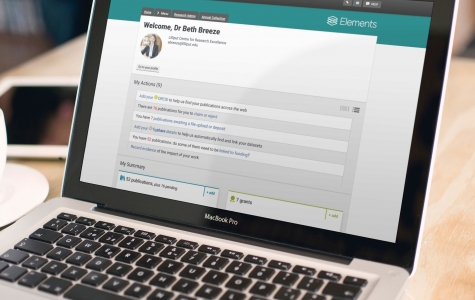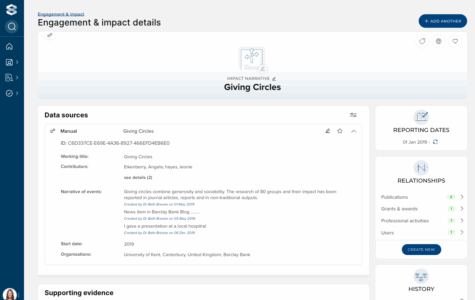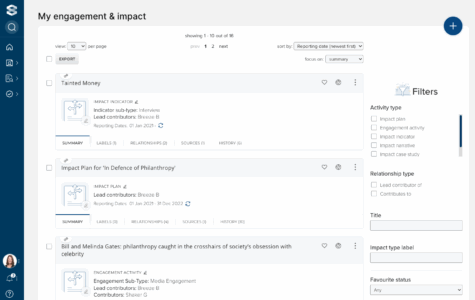Tracking impact
More and more funding agencies are asking institutions and researchers to provide qualitative evidence of societal, economic and environmental impact generated as a result of externally funded research. For many disciplines, to demonstrate the wider impact of their work they must go beyond the confines of traditional research metrics, unearthing the stories of how their work is impacting the world beyond research.
Impact doesn’t happen overnight, so our Impact Module allows researchers (or their proxies) to build up their impact records over time, adding narrative fields to capture events as they happen as well as adding associated files, links and references. Elements helps institutions build their own collection of structured, reusable impact records, ready to be curated into case studies, developed into news stories or included in reports to funders.




